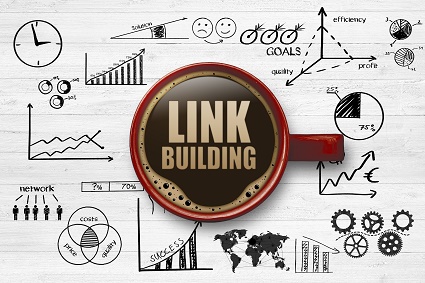Your cart is currently empty!

What’s Linkbuiding?
Google uses literally hundreds of factors to rank the pages of your website, and many of those factors are affected by who’s searching. But one of the most important factors is still the links your website gets from other websites. That means that linkbuilding continues to be important for modern websites.
This is logical and necessary. Google’s spiders (automatic visitors) can tell if your website is responsive, secure, and fast-loading. The algorithm can do a good job of identifying spelling errors, duplicate content, and — increasingly –factual errors. But they can’t tell if your website is attractive, warm, or useful. Human beings make the best judgements on these things. Since humans create links from one website to another, the links to your website give the best information available to Google’s spiders on these matters of human judgement.
Your excellent, useful website will naturally gain links from other websites as you publish great information. But there’s nothing wrong with speeding up the process.
What is NOT linkbuilding
Making sure to have internal links when it’s useful to your readers is important. A link to an earlier post that gives more information or explains a term is helpful to your readers. It’s not linkbuilding.
Links from your social media back to your website can be great for traffic. Those links are one of the main reasons to use social media — you always want to bring new people back to your website, where you have maximum control over your message. Creating your social media accounts and making sure that they contain a link to your website is linkbuilding. But continuing to place additional links in your social media is a good social media practice. It’s not linkbuilding.
Paid or swapped links, links created by automatic programs, and link wheels are not linkbuilding. They’re shady practices that will harm your SEO. Paid ads with links are fine, but they’re also not linkbuilding.
So what’s linkbuilding?
Linkbuilding is identifying websites that reach your target market, and persuading the webmasters of those sites that a link to your website would benefit their readers.
In some cases, it’s as simple as filling out a form or claiming an existing post or page at a directory website. In other cases, you may need to create valuable content and email an offer to the webmaster. You might provide a helpful infographic or blog post for a high quality website, or identify a resource on your website that could replace a broken link in a post on your target website.
Simply correcting or updating information at an existing listing can also be useful. Often, an established practice or brand may have listings in many places on the web without any links to the website. Asking for a link is often all it takes in these cases. And alerting influencers in your field to a new in-depth blog post can often gain links even without the request.
Linkbuilding can take a lot of time. It can also take creativity and good communication skills. It can even require relationship building. But the ROI is significant. It’s worth adding the investment to your marketing budget.
by
Tags:

Leave a Reply